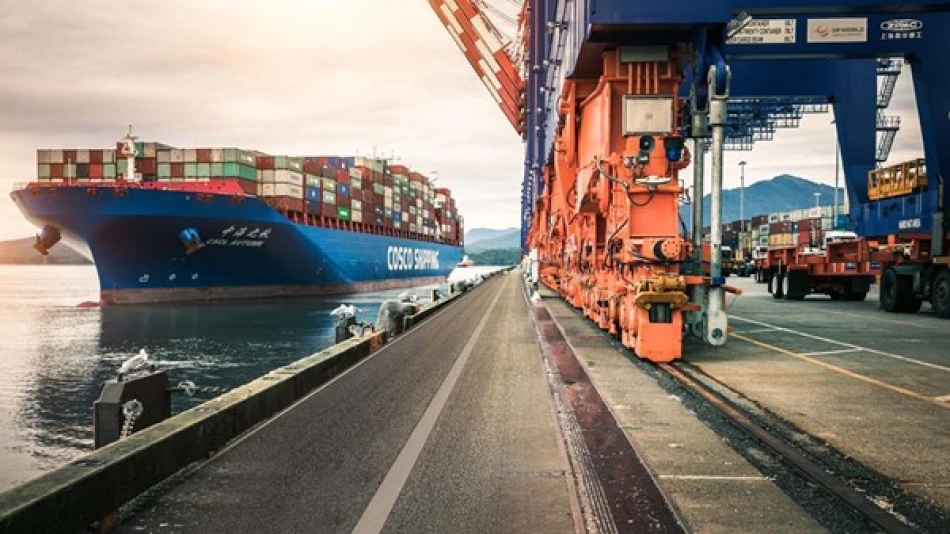
UAE Forges 28 Comprehensive Economic Partnerships Worldwide, Boosting Global Collaboration
UAE's Trade Diplomacy Accelerates: 28 Economic Partnerships Target $1.1 Trillion Non-Oil Trade Goal
The United Arab Emirates has positioned itself as a global trade powerhouse through an aggressive partnership strategy, signing 28 comprehensive economic partnership agreements that collectively reach a quarter of the world's population. With 11 agreements already operational and total trade volume hitting a record $816 billion in 2024—a 14.6% year-over-year surge—the UAE is rapidly advancing toward its ambitious target of $1.1 trillion in non-oil trade by 2031.
Strategic Partnerships Span Four Continents
The UAE's comprehensive economic partnership agreements showcase remarkable geographic diversity, with active deals spanning from India and Indonesia in Asia to Turkey and Serbia in Europe, and extending to New Zealand in Oceania. Recent signings include partnerships with Malaysia, Kenya, Angola, and the Central African Republic, demonstrating the Emirates' focus on emerging markets with high growth potential.
The inclusion of the Eurasian Economic Union partnership represents a particularly strategic move, providing UAE businesses access to a massive regional bloc that includes Russia, Kazakhstan, Belarus, Armenia, and Kyrgyzstan—markets that many Western nations have limited access to due to geopolitical tensions.
Beyond Traditional Free Trade: A Five-Pillar Approach
Unlike conventional free trade agreements, the UAE's comprehensive partnerships operate on five key principles that create deeper economic integration:
Tariff Elimination and Market Access
The agreements go beyond simple tariff reductions, offering complete elimination of duties on key sectors while providing UAE service providers with enhanced market access—a critical advantage for the country's growing financial services and logistics sectors.
Regulatory Harmonization
By establishing clear, flexible, and transparent rules, these partnerships reduce bureaucratic friction that often hampers cross-border business operations, particularly benefiting small and medium enterprises that lack resources to navigate complex regulatory environments.
Timing Advantage in a Fragmented Global Economy
The UAE's partnership strategy arrives at a pivotal moment when traditional multilateral trade frameworks face increasing strain. While the United States and China engage in trade tensions, and Brexit continues to reshape European commerce, the Emirates has positioned itself as a neutral hub that can facilitate trade between competing blocs.
This approach mirrors Singapore's historical strategy of leveraging geographic and political neutrality to become an indispensable trade intermediary. However, the UAE's partnerships cover significantly more population and economic output, potentially creating a more robust foundation for long-term growth.
Investment and Innovation Hub Ambitions
The partnership program supports the UAE's broader vision of becoming a "global capital for investment and economic innovation" over the next five decades. The country already ranks as the top destination for foreign direct investment in the Arab world, and these trade agreements provide the infrastructure for sustained expansion.
For international investors, the UAE's partnership network offers unique advantages: companies can establish operations in Dubai or Abu Dhabi and access preferential trading terms with nearly two billion consumers across multiple continents. This creates compelling arbitrage opportunities, particularly for businesses looking to serve both Asian growth markets and African frontier economies.
Market Implications and Competitive Response
The UAE's trade diplomacy success puts pressure on regional competitors, particularly Saudi Arabia, which has focused more heavily on domestic economic transformation through Vision 2030. While the Kingdom pursues manufacturing and tourism development, the Emirates is building the commercial infrastructure to capture trade flows regardless of their origin.
The $816 billion trade milestone achieved in 2024 represents more than statistical success—it demonstrates that the UAE's hub model remains viable even as global supply chains face increasing political interference. The 14.6% growth rate significantly outpaces global trade expansion, indicating that the partnership strategy is generating genuine competitive advantages rather than simply maintaining market share.
As geopolitical tensions continue reshaping international commerce, the UAE's comprehensive partnership network positions the country not just as a regional power, but as an essential node in the evolving architecture of global trade.
Most Viewed News

 Layla Al Mansoori
Layla Al Mansoori






